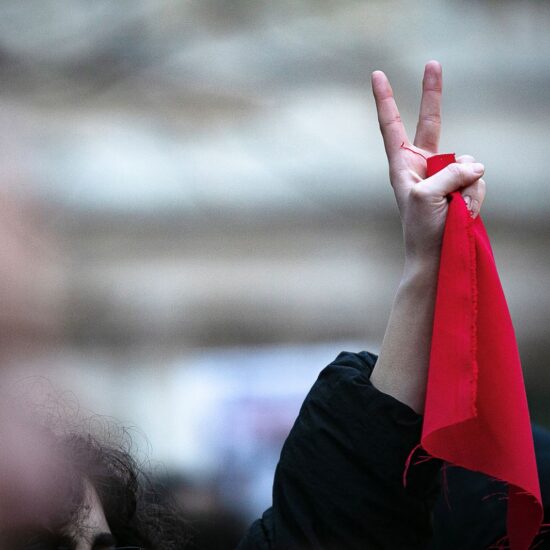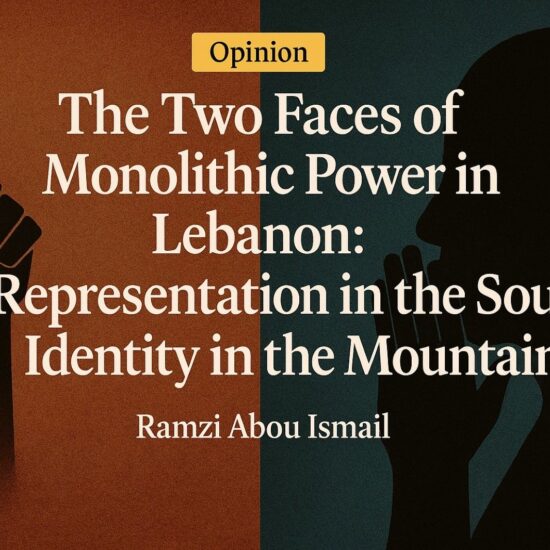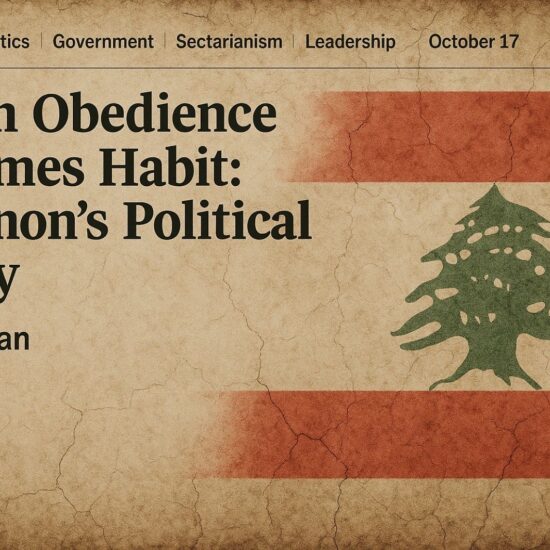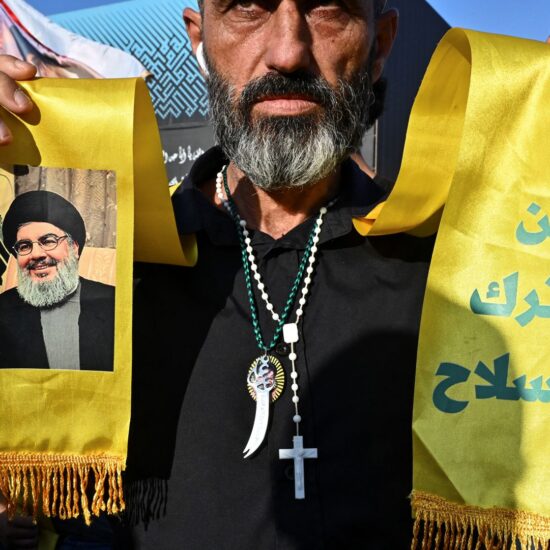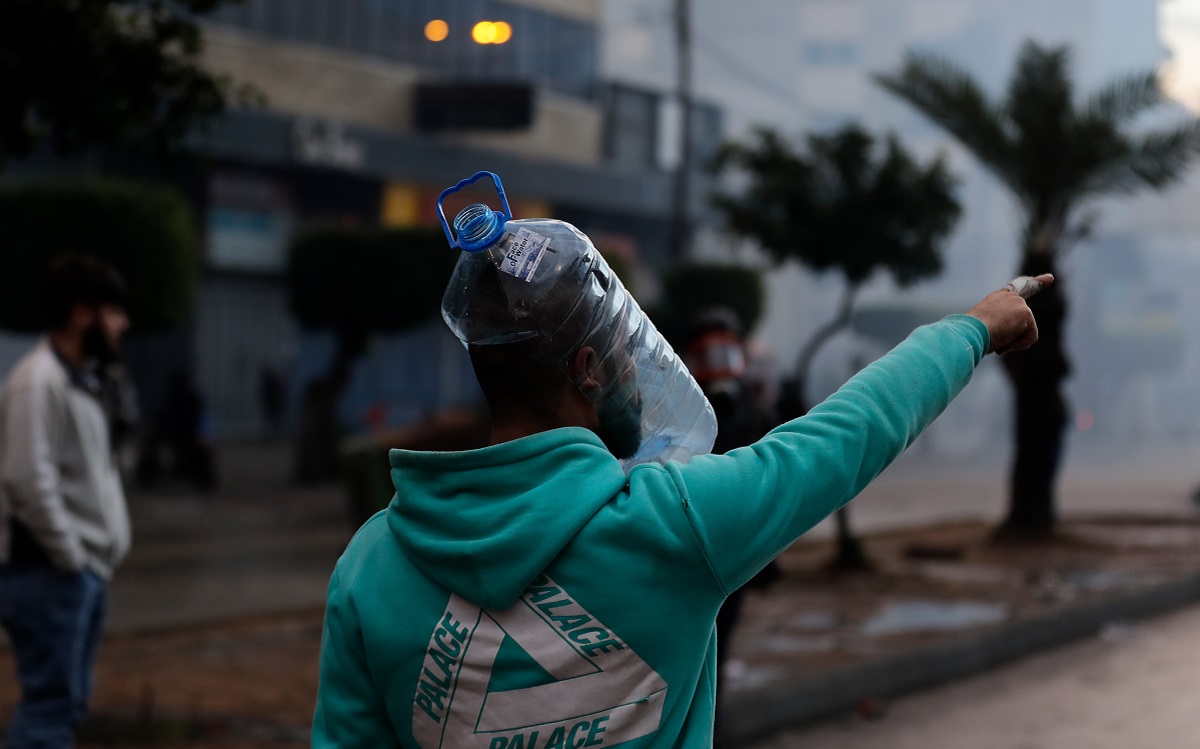
One of the many emotions that washed over Darine Dandachly, a full-time activist, while Lebanon was in the furrows of a massive uprising against the government in 2019, was fear.
She was afraid the movement could come to an end at any moment. Along with her fellow organizers and campaigners, she was continuously preoccupied with concerns over maintaining the protests’ momentum.
Dandachly, an ex-banker, turned to political activism in 2016, fighting for change through parliamentary elections and other initiatives. She takes pride in what the movement achieved: public spaces were reclaimed, intersectional issues, from women’s to migrant workers’ rights, were raised, and roads were blocked in the face of passing politicians.
“We felt our strength as a nation,” she said. “There was no issue that we felt it wasn’t the right time to discuss it.”
The mass anti-government demonstrations, whose chief mission was to overthrow the omnipresent sectarian and corrupt system of governance and call for social and economic rights, were met by increased police brutality in January 2020 in addition to the unfolding of an economic downfall, both of which dampened hopes and disheartened the hundreds of thousands of protestors.
Then, Covid-19 stepped in and scuppered the movement’s thrust.
In addition to the human loss, suffering and socio-economic repercussions triggered by the pandemic worldwide, it arrived in Lebanon during the revolution as a white knight for sectarian political groups to quell the protests and reclaim power over their territorial strongholds, argues a case study published by the Middle East Law and Governance journal.
“The pandemic contributed to the decrease of [protests’] momentum and coincided with the repression that was violently being exercised,” said Mona Harb, the lead author of the research paper.
The study demonstrated that the health crisis imparted a golden opportunity to the compromised political parties to clear the streets in the name of protective health measures, devitalize public agencies for their own interest, avert necessary policy reforms, and reassert their dominance over their share of neighborhoods and cities by promptly dispensing medical services and cash assistance.
The study also mapped locations where various gestures and efforts of sectarian and non-sectarian groups, in response to the pandemic, took place across the country.
The Lebanese government at the time, headed by former prime minister Hassan Diab, who succeeded Saad Hariri, declared a state of health emergency in mid-March 2020 and imposed tight control measures. Despite some criticism, the government was generally patted on the back for its auspicious governance of the pandemic; performing better than many countries and seeing lower numbers of cases on average.
Behind the semblance of calm and control, the widely peaceful protests were met by the Lebanese military and security forces who used excessive force: the firing of rubber bullets, teargas and live ammunition, beatings, and arbitrary detention, in an attempt to disperse protesters, according to Amnesty International.
Upon the pandemic’s arrival in the country, these restraining measures were escalated to further wane the movement and tilt the narrative back the government’s way, according to the study.
“The pandemic came as a virus to the rescue, as we called it in the study, and contributed to adding ammunition to the government that was very keen on stopping the protestors and the uprising,” said Harb, who is also a professor of Urban Studies and Politics at the American University of Beirut (AUB) and co-founder of Beirut Urban Lab.
Meanwhile, many activists willingly quit the street and remained confined at home until the uprising completely vanished.
“As organizers, we felt a huge responsibility when we would invite people to discussions or other events, we would’ve been socially irresponsible to do that when there’s a risk to people’s lives,” Dandachly said.
Loyalty for aid
A product of the 1975-1990 civil war that the country had long fallen prey to was the disintegration of the Lebanese society and its neighborhoods where warlords-turned-politicians regularly inject sectarian sentiments and compete for the dominance of the divided structure.
The public sector in Lebanon endures a true duality of power with the ruling political class, who reigns over these agencies and controls their revenues. During the war, warlords claimed to have “cleansed” their territories from the “others” and imposed self-rule over their community that they repeatedly offer services to, directly through them, to maintain loyalty and favoritism.
“We have a very specific political geography that was born out of the civil war which separated territories and made the opportunity of regaining power [easier],” Harb said.
And this was manifested during the pandemic.
“Political parties and their networks from religious groups and NGOs used this pandemic to reassert their control, keeping in mind that we have elections after one or two years,” Harb said. “There was a calculation within a framework of clientelism that this is an opportunity to provide services, in this case [services] related to the health crisis, and to leverage these services for the elections that are coming.”
Traditional political parties’ personnel donned protective gear, cruised in caravans spraying their respective areas with disinfectant, erected medical tents where they offered jabs and screenings, provided oxygen, oxygen machines, hygienic kits and food parcels, all the while flaunting their party’s logos and colors, marketing themselves through humanitarian aid.
Granting all this, Harb was happily surprised at the relatively efficient response of the Ministry of Public Health (MoPH), a public actor, especially with regard to the vaccination initiatives, leading Harb to describe the efforts as “rare”.
Just as political parties were endeavoring to supply their supporters with the vaccine, such as Hariri’s efforts to donate the Russian Sputnik vaccines to his supporters, MoPH disrupted the normal order of things and took grips over the vaccination rollout process with support from the World Health Organization. MoPH managed to create the first e-governance platform and address a wider range of government data, setting up freely accessible information and fully vaccinating around 42 percent of the population.
There was a calculation within a framework of clientelism that this is an opportunity to provide services, in this case [services] related to the health crisis, and to leverage these services for the elections that are coming.
Titled “Mapping Covid-19 Governance in Lebanon: Territories of Sectarianism and Solidarity”, the research paper stated that “many states have used the Covid-19 pandemic as an occasion to reassert their power and to consolidate their policing and repressive apparatuses. Rather than a mere roll-out of the state, we argue in this paper that the governance of the pandemic reveals tensions between powerful political parties, weakened public agencies, as well as multiple solidarity groups with diverging aspirations, colliding over the imagined future of the country.”
The actions and initiatives taken by non-sectarian actors, characterized in the study as solidarity groups, were sparse and often challenged. These groups relied on social media platforms to get through to the public with limited coverage of their efforts in the mainstream media, according to the study.
Decentralization was another barrier crossed thanks to the uprising, said Dandachly.
In cities like Tripoli, Tyre, Baalbeck, Kfar Remmen, maxims were torn. Instead of following Beirut’s suit, people took to the streets and publicly voiced their political speech in the heart of their villages.
Many experts argue that the movement since has in fact shifted its efforts indoors, rather than totally fading, to mobilize for the upcoming 2022 parliamentary elections happening this May.
“We cannot say the uprising didn’t achieve anything,” Dandashly said. “There’s no going back from what happened in 2019. The revolution was not in the streets only, it was a revolution against traditional concepts, against taboos, and it will continue during the elections and after.”
Sally Abou AlJoud is a multimedia journalist with @NOW_Leb. She is on Twitter @JoudSally.




